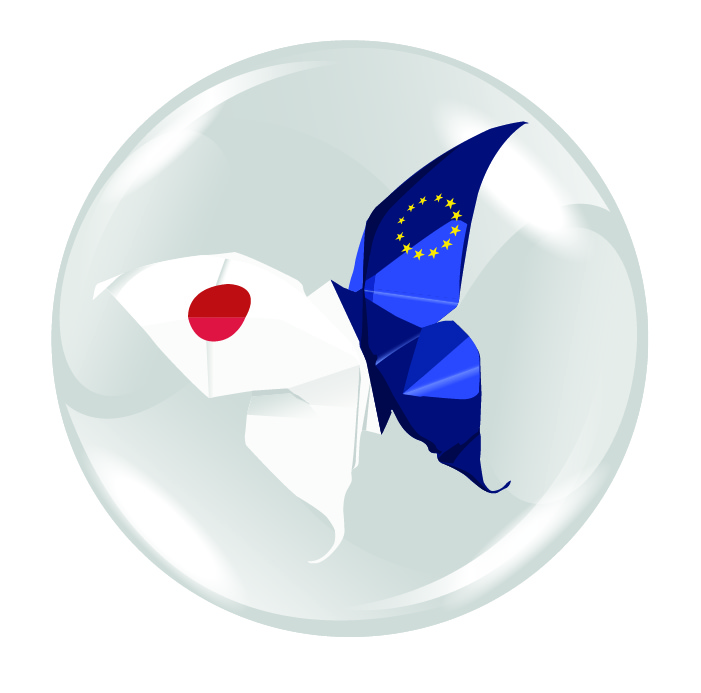Horizon 2020: EU's Research and Innovation Programme and International Cooperation
Horizon2020

Horizon 2020 is the EU's framework programme for research and innovation which runs from 2014 to 2020, with a budget of nearly EUR 80 billion (roughly JPY 10 trillion). It is fully open to international cooperation and is the EU's biggest research and innovation programme ever. It will lead to more breakthroughs, discoveries and world-firsts by taking great ideas from the lab to the market. Horizon 2020 is built around 3 pillars: Excellent Science, Industrial Leadership and Societal Challenges. Europe, like much of the world, faces major challenges such as ageing populations and the depletion of natural resources. Horizon 2020 is designed to address these societal challenges through funding excellent science, technology and innovation.
Seminar: "Opportunities for Research Collaboration with Europe"
Seminar Details
- Venue: Okinawa Institute of Science and Technology (Seminar Room B250)
- Time: 10:00-12:30
- Organisers: EU Delegation to Japan, OIST Communication and Public Relations Division
- Target audience: OIST Postdocs, OIST Grants and Research Collaborations Section, OIST University Research Administrators, and participants from outside OIST
Program
- Welcome Address / Opening Remarks
- Peter Gruss, President, Okinawa Institute of Science and Technology
- Leonidas Karapiperis, Head of S&T Section, EU Delegation to Japan
- Presentations
- "International research collaboration carried out at OIST" – Mary Collins, Dean of Research (TBC)
- "Opportunities for Research Collaboration under Horizon 2020" – Tom Kuczynski, S&T Section, EU Delegation to Japan
- "MSCA RISE and Overview of NCP Services" - Naomichi Yamada, National Contact Point Horizon 2020 in Japan
- Talk by Ingo Höllein, Counsellor Science and Technology at the Embassy of the Federal Republic of Germany
- Talk by Saiki Hase German Research Foundation (DFG) Office in Japan
- Talk by Marco Massetani, Italian Embassy, correspondent in Okinawa
- Talk by Noriko Ogawa, Officer, Science and Innovation, Embassy of Sweden
- Talk by Jacques Maleval, Director of the Tokyo Office for Northern Asia, CNRS (the French National Scientific Research Center)
- Talk by Teppo Turkki, Counsellor for Science, Technology and, Innovation, Sitra Fellow, Embassy of Finland
- Q&A
- Closing Remarks
Individual Consultations
OIST researchers may register online for individual consultations with the Request Individual Consultation webform. Please see the People page for detailed profiles:
- Leonidas Karapiperis, Head of S&T Section, EU Delegation to Japan
- Tom Kuczynski, S&T Section, EU Delegation to Japan
- Naomichi Yamada National Contact Point Horizon 2020 in Japan
- Ingo Höllein - Counsellor Science and Technology at the Embassy of the Federal Republic of Germany, Tokyo
- Saiki Hase - German Research Foundation (DFG) Office in Japan
- Marco Massetani - Counsellor Science and Technology at the Embassy of Italy
- Noriko Ogawa - Officer, Science and Innovation, Embassy of Sweden
- Jacques Maleval, Director of the Tokyo Office for Northern Asia, CNRS (the French National Scientific Research Center)
- Teppo Turkki, Counsellor for Science, Technology, and Innovation, Sitra Fellow, Embassy of Finland, Tokyo
Horizon2020
Europe has a long tradition and history of excellence in research and innovation. With only around 7% of the world's population, Europe accounts for a quarter of global expenditure on research, and produces a third of all high impact publications and patent applications. Research and innovation are supported both at national level, by each of the EU's 28 Member States, and at the EU level.
Japanese researchers may join activities in any area under Horizon2020. Horizon 2020 offers the best Japanese academic or industrial researchers a unique gateway to Europe’s excellence in research and innovation, including access to Europe's knowledge, scientific data, world-class infrastructures and to world-leading scientific networks.
EU and Japan work together under Horizon 2020 in a variety of ways:
- Through the regular Horizon 2020 calls for proposals, where Japanese participants can join projects in any area.
- Through "coordinated" or "joint" calls for proposals issued by the EU and counterpart ministries and agencies. Here, each side makes available an equal amount of funding to support their researchers in joint projects in areas of common interest. In recent years such calls have been issued in photovoltaics, superconductivity, aeronautics, critical raw materials and ICT. In certain cases JST may provide funding for participation in regular calls for proposals.
There are many more promising areas for cooperation, such as: Health, Renewable Energy, Security, Nanotechnology, Sustainable food security, High Energy Physics and Robotics. We also work together in a number of other areas, including energy (nuclear and non-nuclear), space research, security research and high energy physics. - There are many opportunities for short- and long-term mobility of researchers to and from the EU, through Marie Sklodowska-Curie Actions and the European Research Council (ERC) (under Excellence Science), which offer fellowships and grants to talented researchers. Mobility of students is also supported through Erasmus+.
Collaborative research projects in all areas are selected through calls for proposals and peer review by independent experts.



